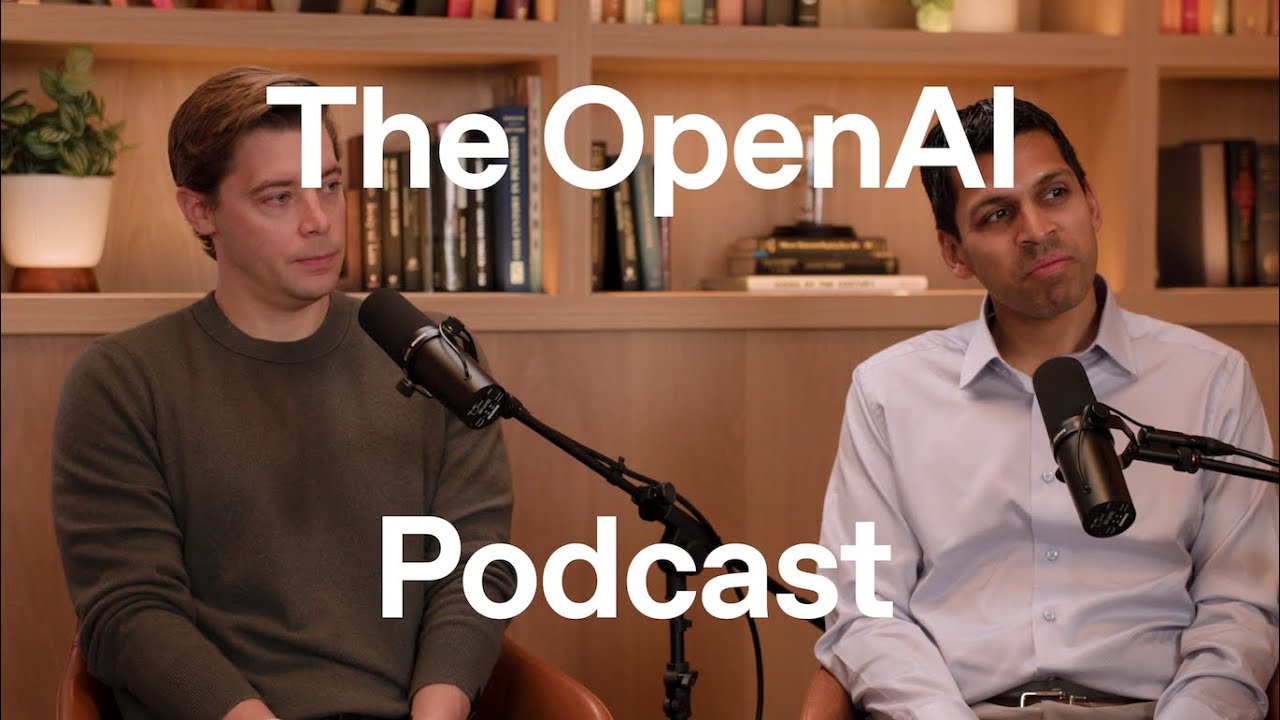
The rapid advancement of artificial intelligence is reshaping the global economy in unprecedented ways. As AI tools become more sophisticated and widely adopted, questions about their impact on jobs, productivity, and economic growth are at the forefront of public discourse. Two key leaders at OpenAI—Brad Lightcap, Chief Operating Officer, and Ronnie Chatterji, Chief Economist—offer valuable insights into how AI is transforming work and what this means for our economic future.
The Evolution of AI Deployment
OpenAI has evolved from primarily a research organization to one focused on both research and deployment. Brad Lightcap explains that deployment involves determining how AI is used across different countries, industries, and contexts. This includes working closely with customers, partners, and users to understand their needs and how they interact with the technology.
The launch of ChatGPT in November 2022 marked a pivotal moment in AI deployment. What began as an experimental conversational interface quickly became a dominant paradigm for how people interact with AI. The success of ChatGPT surprised even its creators, demonstrating that the right interface could make AI accessible and valuable to millions of users worldwide.

The Economic Lens: Understanding AI's Impact
As OpenAI's Chief Economist, Ronnie Chatterji approaches AI from a different angle. His role involves developing indicators to track AI's economic impact and communicating these insights globally. Unlike traditional corporate economists who might focus on pricing or internal metrics, Chatterji's work is largely external—helping businesses, governments, and individuals prepare for the economic transformation that AI is driving.
"We're at the beginning of a real transformation in the economy," Chatterji explains, "and it's something that people need to be prepared for. The biggest job I have at OpenAI is developing indicators to tell us where the economy is going and communicating that to people all over the world."
AI as a Productivity Multiplier
One of the most significant economic impacts of AI is its potential to dramatically increase productivity across various fields. Software engineering is a prime example where AI tools are enabling developers to be not just marginally more productive, but potentially 5-10 times more productive.
Lightcap notes that OpenAI is seeing the rise of tools like Cursor and Windsurfer that are transforming the software development process. These AI-powered tools can help engineers write better code faster, debug more efficiently, and tackle more complex problems than they could on their own.
- AI enables software engineers to produce more code in less time
- The quality of code can improve with AI assistance
- Developers can focus on higher-level problem-solving rather than routine coding tasks
- Smaller teams can now accomplish what previously required much larger teams
Scientific Research Acceleration
Beyond software, Chatterji highlights scientific research as another area where AI is having a transformative impact. By putting "amazing intelligence in the hands of scientific researchers," AI can accelerate discovery and innovation, which ultimately drives economic growth.

This acceleration of scientific research has profound implications for fields like medicine, materials science, and climate technology. When researchers can analyze data more efficiently, simulate complex systems, and generate novel hypotheses with AI assistance, the pace of innovation increases dramatically.
Addressing Concerns About Job Displacement
Despite the productivity gains, there's understandable anxiety about AI's impact on employment. Both Lightcap and Chatterji acknowledge these concerns while offering a more nuanced perspective on how AI is changing work rather than simply eliminating it.
In software development, for example, the demand for software continues to outpace supply. While AI might change how developers work and potentially reduce the number needed for certain tasks, it also enables the creation of new applications and services that weren't previously possible, potentially creating new job opportunities.
Chatterji emphasizes that AI is a tool that "lets people do things that they had no ability to do otherwise." Rather than replacing human workers entirely, AI often augments human capabilities, allowing workers to focus on more creative, strategic aspects of their jobs.
Education and Adaptation
As AI reshapes the economy, education and skills development become increasingly important. The OpenAI leaders highlight the need for educational institutions to adapt their curricula to prepare students for an AI-augmented workplace.

This includes teaching students not just technical skills, but also how to effectively collaborate with AI tools. Understanding when to rely on AI and when to apply human judgment becomes a critical competency in this new economic landscape.
The Global Perspective
OpenAI's economic research extends beyond the United States to understand how AI is impacting economies worldwide. Chatterji mentions traveling to London, Brussels, Delhi, and Washington to engage with stakeholders and observe how different markets are responding to AI technologies.
This global perspective is crucial because AI adoption and its economic effects vary significantly across regions due to differences in infrastructure, regulatory environments, and workforce composition. By studying these variations, OpenAI aims to develop more nuanced strategies for AI deployment that can benefit diverse economies.
Looking Ahead: The Future of AI and Economic Growth
Looking to the future, both Lightcap and Chatterji express optimism about AI's potential to drive economic growth and improve quality of life. They envision a world where AI helps address major challenges in healthcare, climate change, and other critical areas.
However, they also recognize that realizing this potential requires thoughtful deployment and policy approaches. By continuing to study AI's economic impacts and engaging with stakeholders globally, OpenAI aims to ensure that the benefits of AI are broadly shared across society.
Conclusion
The insights from OpenAI's leadership provide a valuable framework for understanding AI's economic impact. Rather than viewing AI through the narrow lens of job displacement, they encourage us to consider its broader potential to enhance human capabilities, accelerate innovation, and create new forms of value.
As AI continues to evolve, its economic implications will undoubtedly become more complex. By fostering open dialogue between technology developers, economists, policymakers, and the public, we can work toward ensuring that AI serves as a powerful tool for inclusive economic growth and human flourishing.
Let's Watch!
How AI is Transforming the Economy: Insights from OpenAI Leaders
Ready to enhance your neural network?
Access our quantum knowledge cores and upgrade your programming abilities.
Initialize Training Sequence